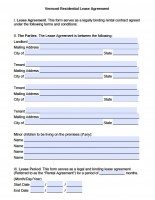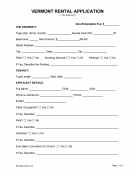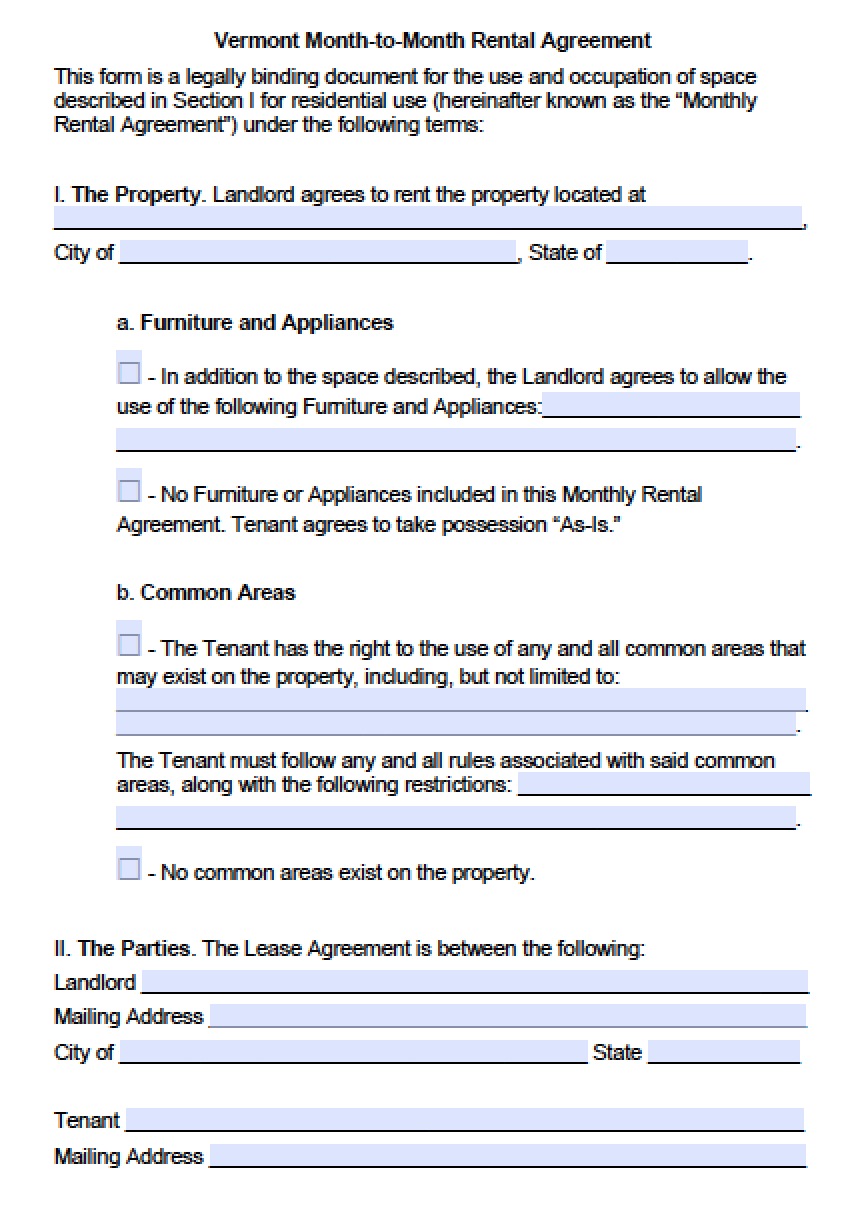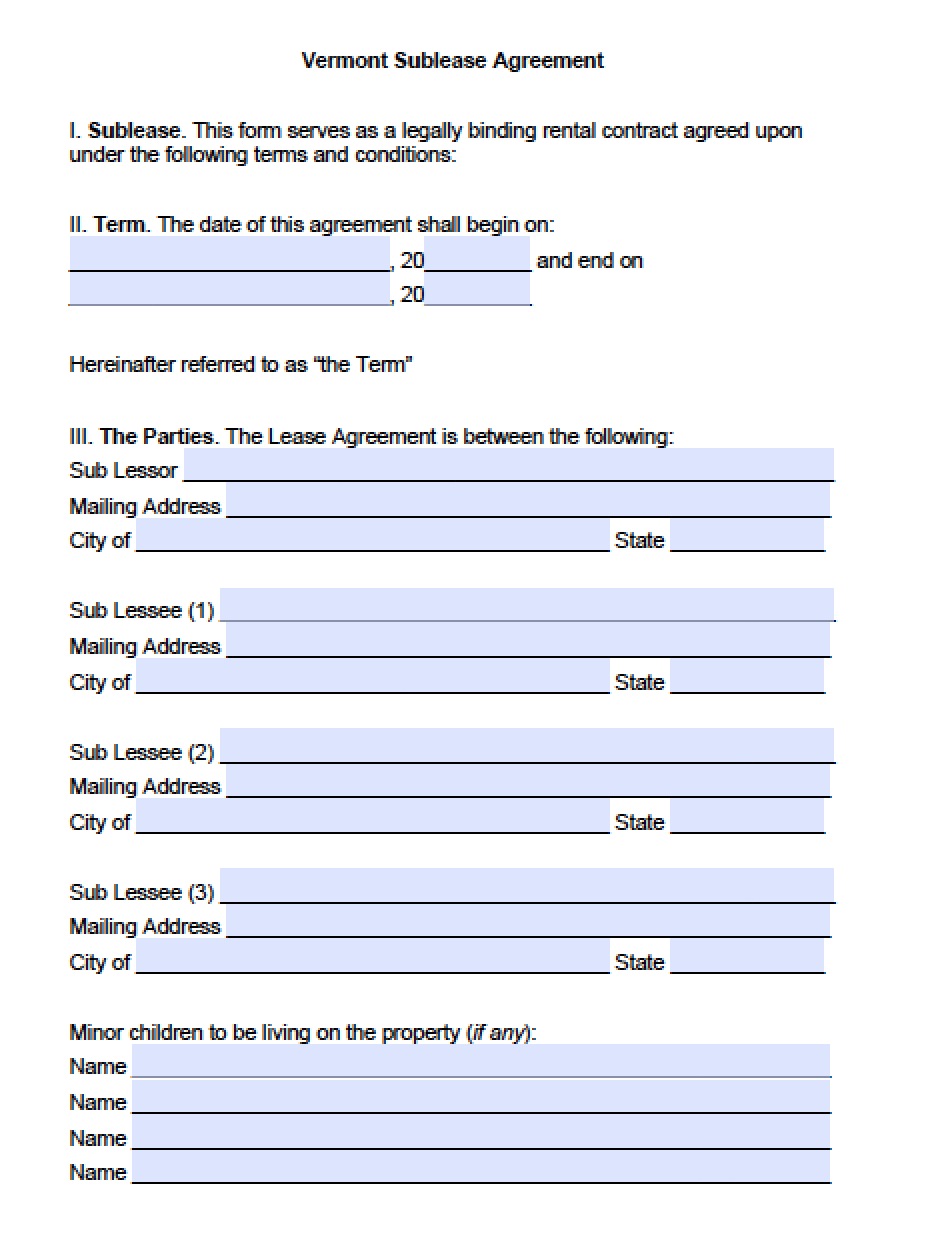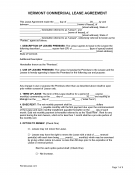The Vermont lease agreements are rental contracts that can be negotiated and signed by a landlord and a tenant. The terms and conditions laid out in the agreement are applied to a particular residential or commercial rental property. After a prospective tenant has shown interest in a rental property, be it for personal or business use, the landlord will check the background of the individual or business to make sure they will make a suitable tenant; for residential property, a landlord can use the rental application from the list of forms below. This list of Vermont rental forms also includes a notice of nonpayment, which can be used to warn a tenant that they are currently in default of their rental agreement. All of the below forms have been created and must be completed in accordance with Chapter 137 of the Vermont Statutes.
Vermont Rental Lease Agreement Templates | PDF
Vermont Lease Agreements
The Vermont standard residential lease agreement is a rental contract between a landlord and a tenant renting a residential dwelling. Before presenting a potential tenant with the lease, the landlord will check the tenant’s credit and other background information through the rental application. Once the tenant has been approved, the parties can go through the agreement to make sure the terms and conditions are fair. The length of a standard lease is one (1) year, but the parties may decide…
The Vermont fourteen (14) day notice to pay rent gives a tenant fourteen (14) days to pay rent or vacate the property if they have failed to pay rent as per their lease agreement. This form shall be served on the tenant by the landlord and acts as a warning to the occupant(s) of the property that if rent is not paid, an eviction process may be started. If the tenant pays in time, the landlord will waive the notice….
The Vermont rental application is a form that allows a property owner/manager to authorize a background check of an individual looking to rent residential property. This document will provide the landlord with a look at the applicant’s employment history, financial status, rental history, and credit score. Any fees associated with the background check can be charged to the tenant, at the landlord’s behest. The landlord will look through all the applications they have received before presenting a lease agreement to the…
The Vermont month-to-month lease agreement is at once a short-term lease and a lease of indefinite length. Also known as a “tenancy at will,” a monthly lease agreement is designed to allow a tenant to rent property from a landlord on a month-to-month basis with no fixed end date. Aside from the temporary nature of the lease, this type of contract contains the same terms and conditions as any other rental agreement, such as rent amount, payment date, security deposit, tenant…
The Vermont sublease agreement is a written contract between a sublessor (individual currently renting residential space) and a sublessee (person interested in leasing said space on a temporary basis). While there aren’t specific laws pertaining to subleasing in Vermont, it is standard for the sublessor to obtain permission from the landlord to sublet their space. Once they have permission, the landlord is not responsible for the sublessee. The sublessor will take on all responsibility and liability in regard to the…
A Vermont commercial lease agreement is a written legal arrangement between an owner of retail, office, or industrial space and an individual or entity willing to occupy the premises. Before renting property for commercial use, the owner or manager/landlord should vet the business to make sure they are in good standing, financially speaking, and will be able to make all the necessary payments. Once a business has been approved for a lease, the two parties can negotiate terms such as…
STATE DISCLOSURES
Lead-Based Paint – A Federal disclosure statement that landlords must provide to potential tenants if any part of the property was erected before January 1st, 1978.
SECURITY DEPOSITS
Maximum – The landlord has the right to ask for a security deposit of any amount they see fit.
Returning (9 V.S.A. § 4461) – A security deposit must be returned within fourteen (14) days if the housing unit was used as the tenant's primary residence. If the dwelling was used for seasonal occupancy, the lessor has sixty (60) days to return the funds.
LANDLORD'S ACCESS/ENTRY
The landlord must give the tenant at least forty-eight (48) hours notice before entering the property for a non-emergency reason (9 V.S.A. § 4460).

